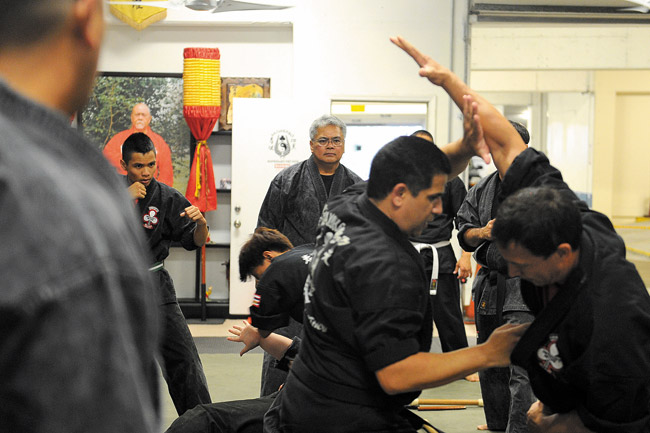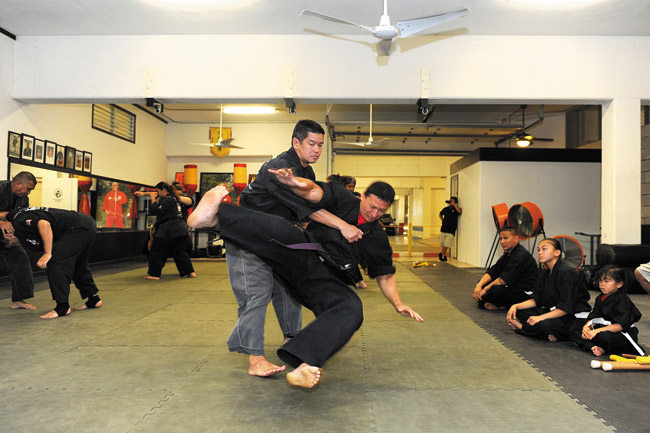The First Mixed Martial Art
His response was one any father would be proud of: “You told me to get a degree and a trade, so I did that.”
Emperado Luna’s goal is to bring kajukenbo back to the ’70s mentality of respect and discipline that he grew up with.
mw-riv-071614-kajukenbo-2
“No matter what kind of martial arts you took, if you had a black uniform or a white uniform, we fought in a tournament, and win or lose, we were still friends,” says the 55-year-old.
He relays a scenario where parents of 7 or 8-year old children carry their children’s bags into the kajukenbo studio.
“I tell them to give him his bag or give her her bag,” explains Emperado Luna, who joined the U.S. Coast Guard Reserve at the age of 50. “Because what if you die tomorrow? They need to learn to stand on their feet. They need to learn to carry themselves.”
Some young ones head into Emperado Luna’s studio with an attitude.
“I change it,” he says. “We want to make you into a responsible, respectful person. I want them to do good in life.
“There are two things I don’t want out of my students. I don’t want to go to their funeral, and I don’t want to visit them in the hospital.”
His hope for students is that they contain attributes similar to a sponge:
“Don’t be heard, just be seen. You’re a little one growing up, and once you reach a certain age you can say your peace. But right now, you’re just a sponge absorbing all the information the world can give you.”
Emperado Luna’s headquarters are at 777 S. Hotel St., but his goal is not just to teach students how to excel at kajukenbo.
“I want to give back,” he says. “I want to keep the legacy going. I told myself if I do good in my lifetime, I’m going to give back because that’s where I started from.”
To keep Sijo Emperado’s legacy going, the nonprofit Kajukenbo Self-Defense Institute Headquarters was formed.
“There are about 20 to 30 students who come from unfortunate situations,” he explains. “Everything is free for them. We buy their uniforms, and we give them free training.
“I look at it as everybody has bad luck in life, but if you give them a chance you can guide them and lead them in the right direction.”







